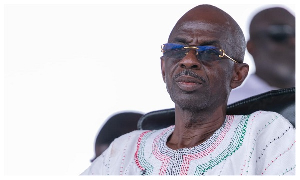Seven African personalities have presented their vision in a lively television debate in a bid to become the President of the African Development Bank (AfDB) after the Board of Governors of the regional financial institution has voted on May 28.
The eighth candidate did not take part in the debate which was held in Washington DC, United States (US), last Thursday and was telecast live in the conference hall of the Institute of Economic Affairs (IEA) in Accra. The ten-year tenure of Donald Kaberuka, a former Rwandan Finance Minister, ends on August 31.
The candidates are Akinwumi Adesina, the current Minister for Agriculture and Rural Development of Nigeria, Jaloul Ayed, a former Tunisian Finance Minister who currently serves as the President of the MED Confederation, a new alliance which aims to promote socio-economic co-operation in the Mediterranean region, and Kordje Bedoumra, the current Chadian Minister for Finance and the Budget.
The others are Cristina Duarte, who has been the Minister for Finance of Cape Verde for nearly 10 years, and Samura Kamara, the present Minister for Foreign Affairs and International Co-operation of Sierra Leone.
Thomas Sakala, a Zimbabwean who was a Vice-President for Country and Regional Programmes and Policy of the AfDB, and Birama Sidibe, a Malian who was the Managing Director of Shelter Afrique and the current Vice-President in charge of Operations at the Islamic Development Bank also partook in the debate.
Each contestant spelt out his/her vision for the AfDB in the next ten years and answered questions posed by some members of the studio audience and selected individuals from Ghana and Benin and the social media. Absent at the debate, however, was Sufian Ahmed, who has been the Finance Minister of Ethiopia for about two decades.
Sidibe said he would prioritise the promotion of the private sector and chart the course for an AfDB which adopts a new operating model while Sakala stressed that he would concentrate on the development of infrastructure, the private sector, create jobs and ensure inclusiveness. Duarte's priorities include infrastructure development, the private sector and institutions.
The IEA organised the debate in partnership with the Centre for Global Development (CDG) in the US and the African School of Economics (ASE) in Benin.
The institute organised two debates for politicians contending to become Ghana's President. Established in 1989 by Dr Charles Mensa, an economist, the institute is Ghana's premier public policy think-tank which broadens discourse on public policy, engenders private sector-led economic growth and strengthens the pillars of democracy.
Business News of Sunday, 26 April 2015
Source: Public Agenda
Candidates present vision as AfDB President
Entertainment












